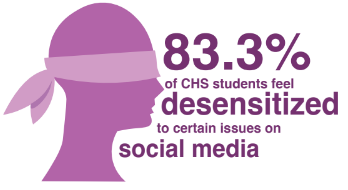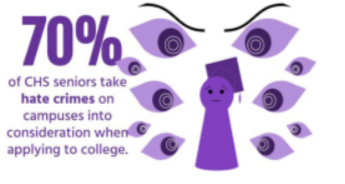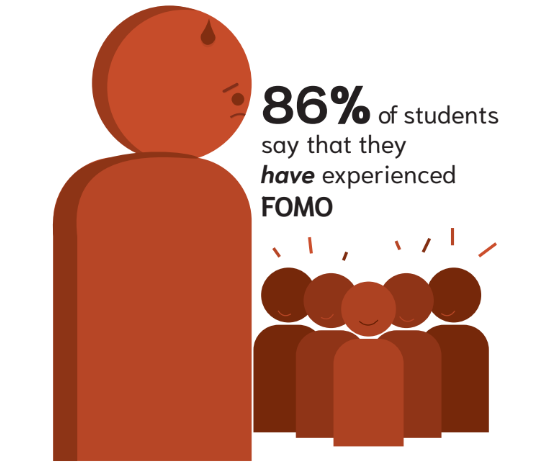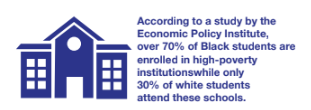Numb to the news: social media as a news outlet masks real issues

BLOT GRAPHICS BY Z. SABRINA LIDING, CINDY LIN, and JANELL GUI
Survey of 54 CHS students from Dec. 6 to Dec. 16.
January 20, 2023
News – and the social response to it – go hand and hand, which is why using social media as a primary news source has gained popularity. However, the reality of the relationship is that stories often get misconstrued, morphed or outright fabricated – or worse, drag attention away from the stories that matter.
Recently, tragedies such as horrific murders, sudden deaths and crippling losses have seemed to bloat the headlines close to capacity. Often, important ongoing and deep-rooted issues are overlooked in the mainstream media because they don’t have the same wow-factor as many superficial stories.
According to People En Espanol, when the Queen of England died, Puerto Rico was suffering with over 700,000 people losing power due to the effects of Hurricane Fiona. The Queen’s death overshadowed the hurricane and delayed resources arriving in Puerto Rico, leaving American citizens in distress as many were uninformed about the disastrous storm.
With the World Cup ending, there were many struggles in Qatar and other countries as well, and each found difficulty being brought to the proper light required for change. According to ESPN.com, there were between 400 and 500 migrant workers’ deaths that were related to the World Cup. Qatar’s death toll came about in the building of the stadium, and the fight to bring those responsible to justice for covering it up is difficult with the majority of notable news channels not headlining the issue.
To add on, the mainstream media is not the only place where people find their news. According to Pew Research Center, about 48% of adults reported that they use different social media apps such as Twitter, Facebook, Instagram, etc. as their primary source for news. Compared to older generations, 78% of the Generation Z population receives their news from social media, according to the Americanpressinstitute.org.
The reliability of news from these platforms is very low compared to authentic news sites. Beyond insensitive comments, misinformation is seemingly cropping up more and more with little to no handle on the situation online. A study conducted by New York University found from August 2020 to January 2021, posts with misinformation had six times more clicks on Facebook than posts containing factual news.
Being that roughly a third of U.S. adults (31%) say they regularly get news from Facebook, according to Pew Research Center, Facebook attempted to crack down on the spread of misinformation by notifying users when they’ve stumbled across something deemed incorrect through their fact-checkers. Although the attempt was well-intentioned, its effects are still yet to be fully understood.
Instagram integrated a similar fact-checking system using third-party fact-checkers, which also begs the question of the reliability and authenticity of the system itself. Doubts with the platforms only heighten already high tensions online, leading to more people closing themselves off from information outside of their ‘trusted’ circles and sources.
Chemistry teacher Erin Wheeler comments about where she receives her source of news.
“If I wanted to know what was happening in high school, I would need to actually pick up a newspaper,” Wheeler said. “But now all you need to do is scroll on your phone, which is why my main news outlet is social media.”
According to Frontiersin.org, algorithmic filtering on social media provides news content that matches with the political orientation and preferences of the users, thus ensuring confirmation biases. The users are usually unaware of this algorithm, exemplifying another way that social media is not a viable source of news content.
Junior Joan Scheurer of Howell expressed their opinions on the presence of social media affecting news algorithms and how the media purposely posts certain things in order to distract the public from other events going on.
“I feel the news has always been desensitized towards violence and overlooks things such as when the Queen died,” said Scheurer.














